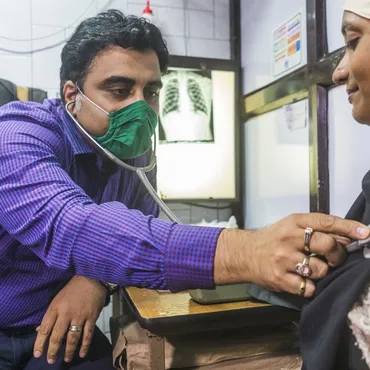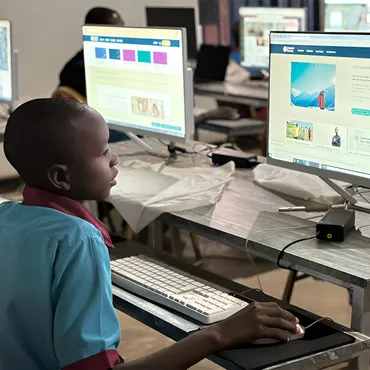A Year of PPC with Great Ormond Street Hospital Children’s Charity
We supercharged our PPC approach, achieving an 84% surge in ecommerce revenue and elevating fundraising conversions with refined ad strategies and analytics.

Great Ormond Street Hospital Children’s Charity

The outcomes
- 460% rise in revenue generated by Google Ad Grants
- 84% rise in revenue from paid AdWords activity
- 769% higher conversions Google Ad Grants visitors
The background
In early 2017, we received an email with a difference. It was from Great Ormond Street Hospital Children’s Charity (GOSH Charity), asking if we could support the charity to reach existing and new fundraising audiences through digital marketing. It was one of the easiest questions we’ve ever had to answer.
Raising crucial funds
Great Ormond Street Hospital (GOSH) provides world-class care and support to seriously ill children every day. To do this, GOSH Charity needs to raise about £100 million each year. The hospital has always relied on public support, even after the founding of the NHS in 1948, which is where GOSH Charity comes into play. The charity — whose mission is to “enhance [the hospital’s] ability to transform the health and wellbeing of children and young people, giving them the best chance to fulfil their potential” — raises money in a number of ways including:
- Fundraising events like Prudential RideLondon, the Virgin Money London Marathon and RBC Race for the Kids
- Donations from supporters
- Legacy giving and Gifts in Will pledges
- The online GOSH Charity shop
Our job was to make sure that every penny spent promoting these activity strands via pay-per-click (PPC) was money well spent.

The challenge
Identifying opportunities for improvement
When we first started working with GOSH Charity, the charity already had a well-performing PPC strategy in place that spanned Google’s Search, Display and YouTube networks. We had a great starting point but we identified a number of ways that we could integrate our sector-wide experience with the great work the team had already done to turbo-charge PPC as an acquisition channel for GOSH Charity. Refocusing the budget, tightening up demographic targeting and significantly expanding the role retargeting played were just three initial areas we felt we could improve on.
For one of the biggest charities in the UK – and a globally recognised brand – we felt PPC could be doing much, much more.
Our approach
GOSH Charity’s PPC strategy rethought
We began by rethinking how GOSH Charity built out their PPC campaigns.
- Firstly (and most significantly), we outlawed the use of pure broad match keywords in search campaigns. This is the biggest mistake we see in PPC accounts. It’s almost never right to use pure broad match as a keyword targeting method, and it presented us with a big opportunity to make GOSH Charity’s budget work harder.
- We completely rebuilt GOSH Charity’s Google Ad Grants account, dramatically increasing ecommerce conversion rates and clickthrough rates (CTR), lowering cost per click (CPC) and significantly lowering cost per acquisition (CPA). When Google announced significant changes to their Ad Grants policies at the end of 2017, GOSH Charity’s account needed only minor adjustments to stay compliant. And we have a clear idea now of when to use a Google Ad Grants account over when to put real paid advertising behind campaigns.
- Next, we built detailed retargeting audiences for every event that GOSH Charity promotes, allowing us to target users who have been on, say, the Royal Parks Half Marathon event page in the last 30, 60, 90, 365 and 540 days. We applied these audiences to AdWords campaigns via a tiered bid adjustment model based on a user’s interaction with specific parts of site. The more qualified the user, the more we pay per click.
- Lastly, when it came to reporting on a campaign’s success, we overhauled the way GOSH Charity attributed conversions to PPC activity. Instead of simply reporting those conversions where AdWords was the last or last non-direct click, we included conversions where AdWords played a supporting role. Now, CPA and return on investment (ROI) figures are much more accurate, because they factor in the role AdWords plays in assisting a conversion. We can truly compare AdWords to, say, Facebook and Twitter activity.
The results
What was the impact 12 months on?
When reporting back to GOSH Charity, we’ve always tried to err on the conservative side: many of the events we’ve promoted involve users registering on a third-party website, meaning we can’t track this revenue in Google Analytics. However, data available for the activity that occurred on www.gosh.org paints an impressive figure:
- In 2017, paid AdWords activity generated just over £25,000 of ecommerce revenue — an increase of 84% compared to 2016, despite the fact that we only spent £500 more across the entire year.
- Google Ad Grants activity generated £12,500 of ecommerce revenue — an 460% increase compared to the same period in 2016.
- In addition to this, our PPC activity drove over 1,000 additional fundraising conversions. These were users who went on to fundraise for GOSH Charity at an event like Prudential RideLondon. While we couldn’t measure exact final fundraising amounts, GOSH Charity’s predefined Google Analytics goal values put this revenue in the region of £146,000 — over £125k more than in 2016.
- GOSH Charity’s Google Ad Grants account had a 13% lower bounce rate year-on-year, a 27% increase in pages per session, and a $0.20 lower CPC across the whole year. The account’s clickthrough rate rose from 2.9% to 4.21% — put another way, as an indicator of how much more targeted GOSH Charity’s ads now are, we delivered 2,000 more clicks than in 2016, but our ads showed 750,000 fewer times. While it might seem strange to report on such a drastic fall in impressions, this is evidence that GOSH Charity’s ads weren’t reaching the right audience all of the time. We fixed that.
Next steps
What’s next for Torchbox and GOSH Charity?
The next 12 months looks even more exciting for GOSH Charity. In ensuring the charity is reaching qualified, converting audiences, we’ve moved activity on to the Bing Ads and DoubleClick advertising platforms, giving us a bigger toolkit of channels and targeting options to work with. This will ensure that every penny and pound GOSH Charity spends on pay-per-click continues to deliver as much revenue as possible for the patients and their families that the hospital does such an amazing, inspiring job of helping.
Send an enquiry



